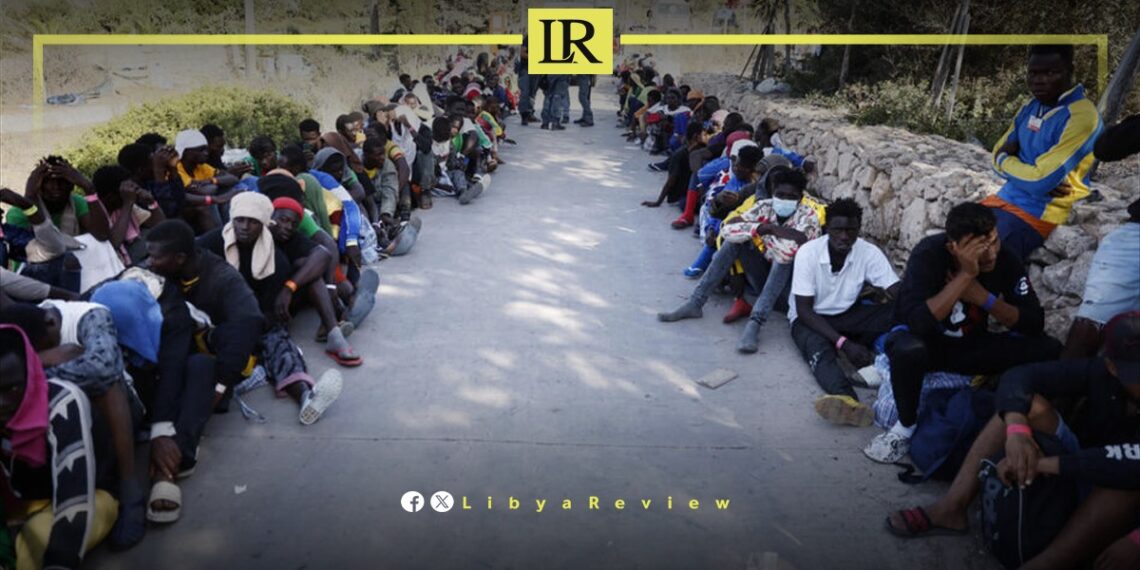Tomorrow, Tripoli, the capital of Libya, will host the “Mediterranean Migration” Forum organized by the Libyan Government of National Unity (GNU). The event, themed “Enhancing Integrated Border Security and Management and the Libyan State’s Vision for Addressing Illegal Migration,” will feature participation from European and African nations, as well as several international organizations.
The forum aims to discuss common challenges and propose practical solutions to curb illegal migration across the Mediterranean. It also seeks to enhance cooperation between African and European countries to achieve greater regional stability.
Participants will address several key issues, including improving border management, enhancing rescue and relief mechanisms for migrants, and providing necessary support to countries receiving migrants.
Libya’s interim Prime Minister Abdul Hamid Dbaiba stated that the forum would serve as a serious discussion platform to establish a practical and strategic framework that ensures development in African countries to curb migration. Dbaiba emphasized that the approach should address the core issues in source countries, as past experiences have shown that relying solely on security measures is ineffective.
Dbaiba added, “Sahel countries are no longer just transit states. The increasing number of migrants places a security and ethical responsibility on us to collaborate with all concerned countries to develop comprehensive solutions that address the issue early and provide a decent life for African citizens in their home countries.”
Dbaiba welcomed Chadian President Mahamat Idriss Déby and his accompanying delegation, who arrived in Tripoli to participate in the forum. Maltese Prime Minister Robert Abela had already arrived, along with several ministers and representatives from African countries.
The Italian news agency Nova reported that Italian Prime Minister Giorgia Meloni would also attend the forum on Wednesday, accompanied by Italian Interior Minister Matteo Piantedosi.
Countries participating in the forum include Italy, Malta, Niger, Chad, Spain, Greece, the Czech Republic, Sudan, Algeria, Tunisia, and the Netherlands. Additionally, organizations such as the Arab League, the African Union, and the European Union will be represented.
The forum comes at a time when the Mediterranean region is witnessing a significant increase in illegal migrants. Libya, located in North Africa and approximately 300 kilometers from the Italian coast, is one of the primary departure points for thousands of migrants from Sub-Saharan Africa attempting to reach Europe by sea, often risking their lives.
According to the International Organization for Migration, the number of migrants who died or went missing during their migration journeys in or from the Middle East and North Africa rose to 4,984 in 2023, compared to 3,820 in 2022.
Observers in Libya fear that the forum may result in agreements aimed at settling migrants in Libya to prevent their arrival in Europe, which could exacerbate the economic crisis and the devaluation of the local currency.
Political analyst Hossam Al-Abdali highlighted in a press statement that the main challenge for the forum is how to stop migration from source countries, particularly the Sahara nations like Niger, Chad, Burkina Faso, Sudan, the Central African Republic, Sierra Leone, and West African countries. He stressed the need for developmental projects in these impoverished nations.
Al-Abdali asserted, “Europe should not expect Libya to protect southern Europe. Instead, they must establish projects to develop these countries because Libya is a transit state, not responsible for stopping this migration. The Europeans, who have exploited Africa’s resources in the past years, bear the responsibility.”
He added, “There was a migration conference in Benghazi recently, attended by several European and African political figures and international organizations. However, what were the results? The real problem lies in not reaching the final steps of results that should clarify that Libya is a transit state, not a source state. It is not Libya’s duty to protect Europe. Europe should work on development projects in African countries beyond Libya, not Libya itself.”
The Mediterranean Migration Forum in Tripoli aims to address the pressing issue of illegal migration across the Mediterranean by fostering international cooperation and proposing comprehensive solutions. However, concerns about potential agreements to settle migrants in Libya and criticisms about the effectiveness of past forums highlight the complexities and challenges involved in tackling this multifaceted issue. The success of the forum will depend on the willingness and commitment of all participating nations and organizations to implement sustainable solutions that address the root causes of migration.


